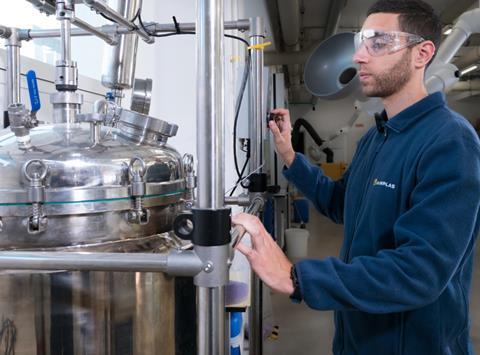
AIMPLAS is leading an innovative research project researching new cleaning and decontamination methods for recycled plastic, with the aim of enabling its safe reuse in food contact applications.
The DECONWASTE project, which is being funded by the European and Valencian governments, will explore advanced decontamination techniques capable of transforming post-consumer polyolefins into safe recycled materials, following the guidelines of the European Food Safety Authority (EFSA).
Unlike other materials such as PET, recycling polyolefins presents significant technical challenges.
“Their wide range of uses, the presence of multiple additives, and their chemical behaviour make decontamination processes more complex and require specialized technologies,” explained Adrián Morales, lead researcher in Mechanical Recycling at AIMPLAS.
The research group also says that the inability to easily distinguish between food and non-food packaging during recycling, or to trace the food-related origin of recycled packaging, complicates subsequent processing stages.
“For this reason, it is essential to research and develop new effective decontamination methods that address these challenges and ensure the safety of recycled materials for food contact use,” Morales emphasized. He added that the initiative aims “not only to comply with European regulations and directives but also to ensure consumer protection and trust in packaged food products.”
In this regard, DECONWASTE will work on developing effective methods to overcome these obstacles and ensure that recycled materials meet safety standards for reuse in food applications.
The project involves collaboration with ACTECO, SPBERNER, and PICDA, and is funded by the Valencian Institute for Competitiveness and Innovation (IVACE+i) through the 2024 call for Strategic Cooperation Projects, and by the European Regional Development Fund (ERDF).
AIMPLAS hopes that “this research will allow companies to overcome one of the main bottlenecks in polyolefin recycling, enabling the use of materials previously discarded in the manufacture of new packaging or other products intended for direct food contact.”
If you liked this story, you might also enjoy:
The ultimate guide to the Packaging and Packaging Waste Regulation in 2025
How are the top brands progressing on packaging sustainability?
Everything you need to know about global packaging sustainability regulation in 2025
The key to increasing the use of reusable packaging in supermarkets













No comments yet